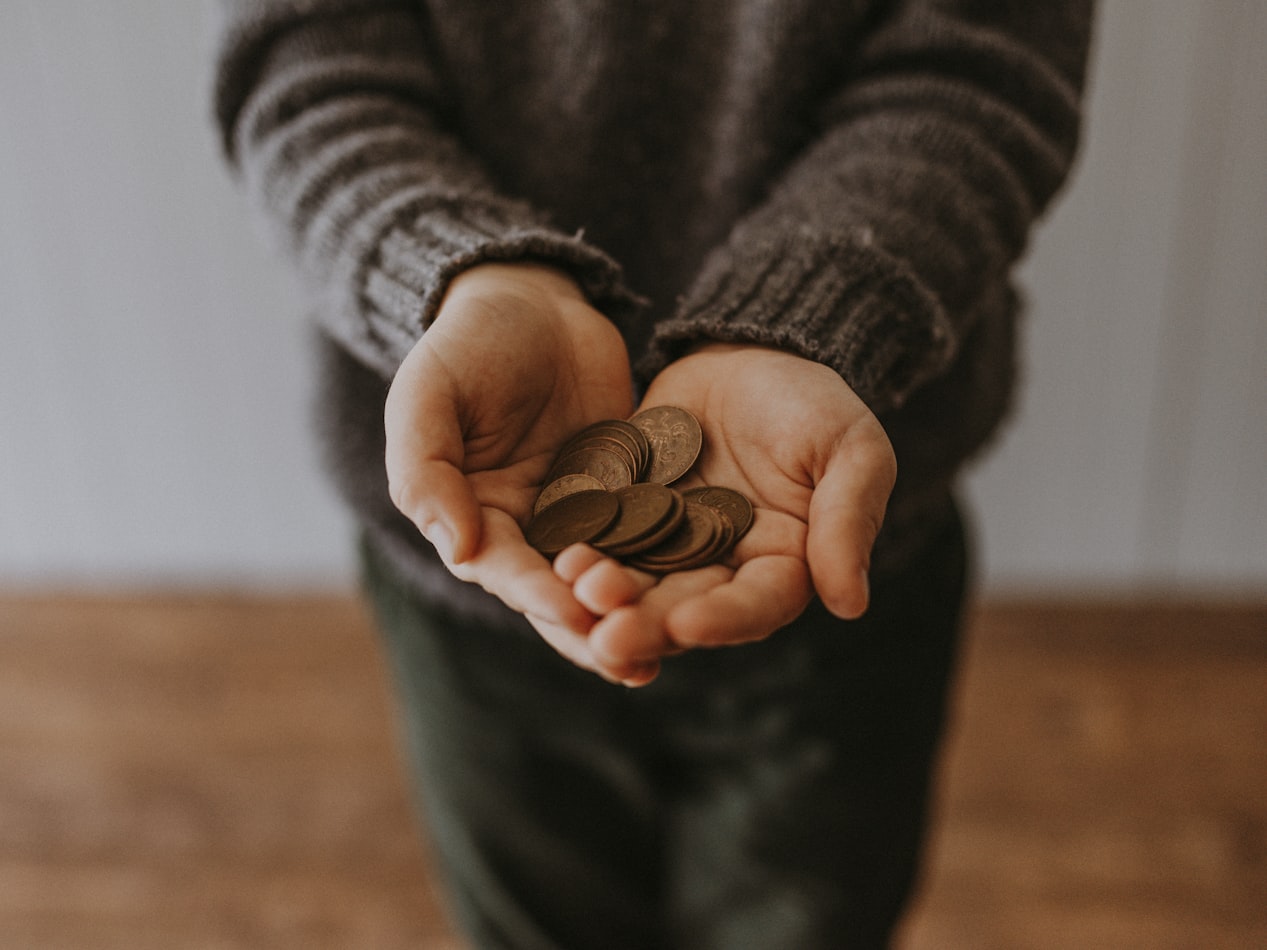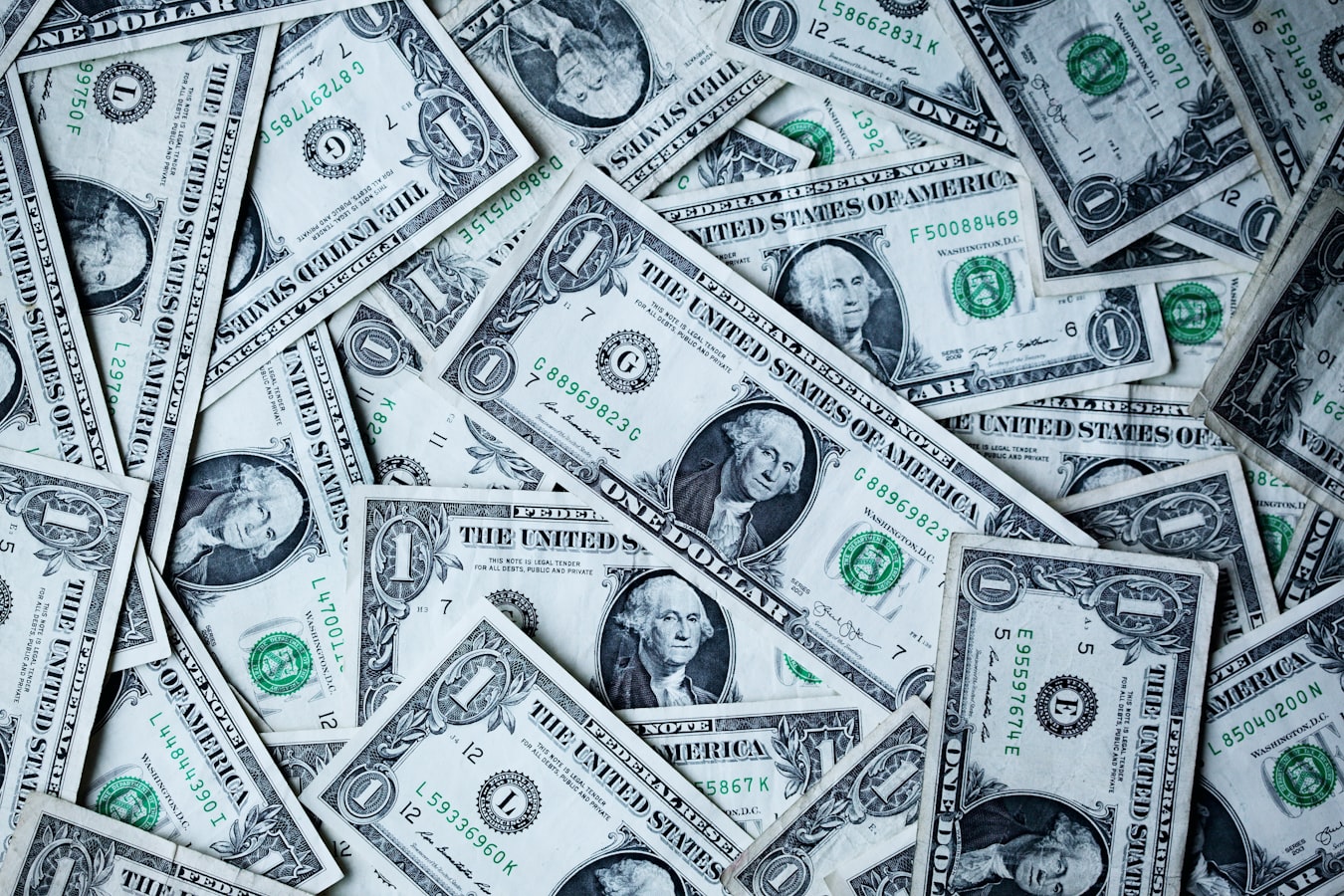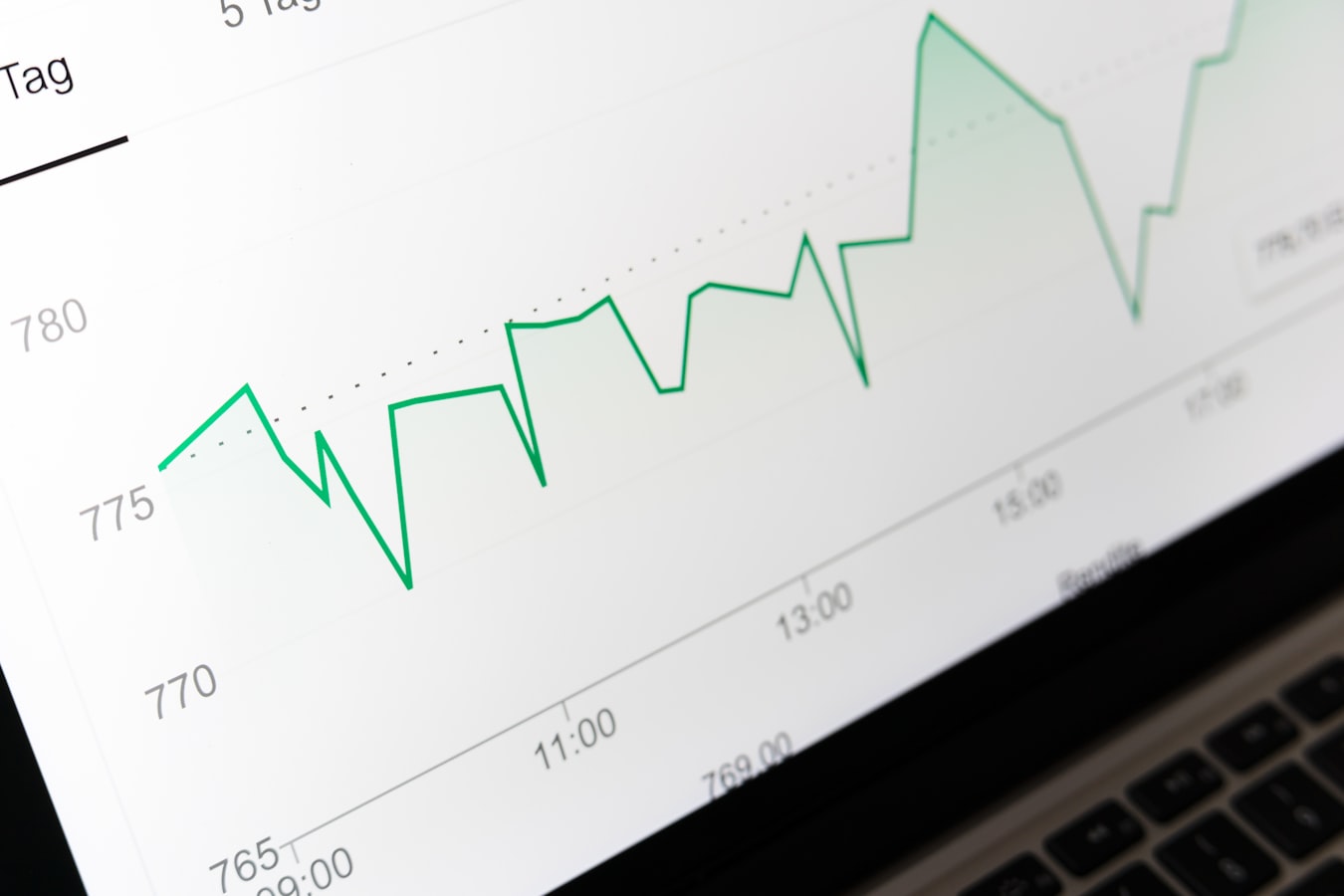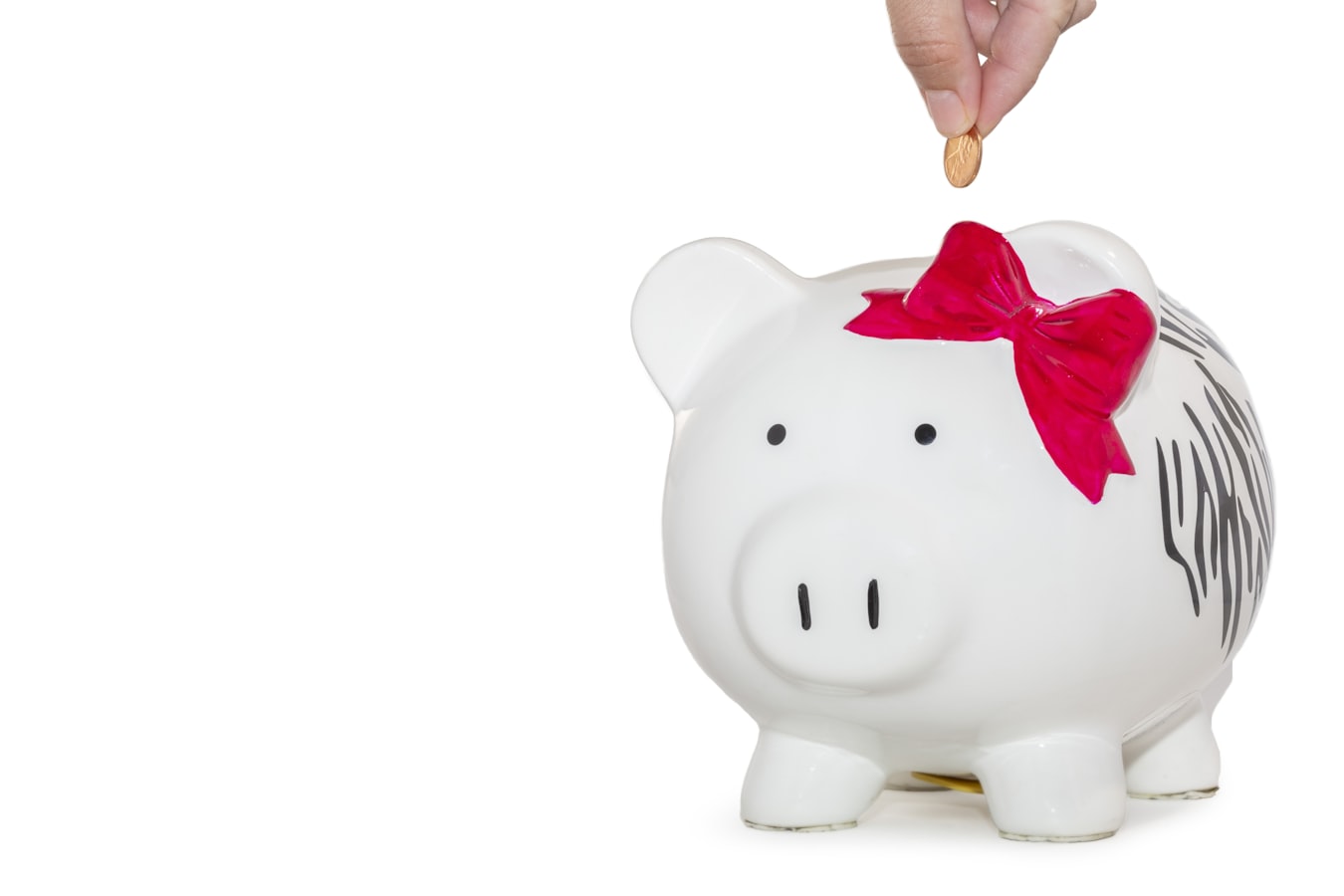The average American has little-to-no money set aside for emergencies and rarely has enough for serious expenses that tend to crop up. Most people recommend having an amount equivalent to 3-6 months of expenses saved up for emergencies, and I’d also suggest saving around 6 months of expenses for the average household’s emergency fund.

Your emergency fund serves to help you if any disasters or unexpected events occur, and they can save you from having to take on extra debt or potentially crippling your finances. These types of events can be a million different things – an appliance breaks, you need to fix your car or house, you get fined, or even something like losing your job.
If you work in an exceptionally volatile field, you may want to save anywhere between 8 and 18 months of expenses. There isn’t a one-size-fits-all rule for emergency funds, but it’s best to play it a little safe here. Be honest with yourself about how at-risk you are for major unforeseeable expenses. If you’re high-risk and you don’t have much job security, you’ll definitely want to save more.

If You Still Aren’t Convinced, Here Are A Few Reasons Why You Should Have An Emergency Fund
It Will Help You Avoid Debt
Instead of having to go into devastating debt every single time something goes awry, you can stave off debt by paying with money from your emergency fund. Of course, in order to keep this up you should include consistent reimbursements for your emergency fund in your budget so that you can keep it topped-off.
For example, let’s say you have to spend $1000 on a home repair after a serious storm. Instead of going in debt for that, you’d use cash from your emergency fund. However, now your savings would be lower than you’d like. In order to build it back up again you might decide to take $100 out of each paycheck until your emergency fund is at your preferred amount again.
Personally, I budget a fairly small amount to go towards my emergency fund every month. Usually this keeps me sitting just over my “goal” emergency fund amount. However, if there is a major event or unexpected expense, I’ll be sure to budget in more money for my emergency fund until it’s close to where it needs to be again.
You’re New To Budgeting Or Living On Your Own
This is a pretty broad topic. You may be a first-time homeowner, be living on your own for the first time, just had kids, or have just never budgeted for anything in your life. All of those can lead to a ton of unexpected expenses. If you don’t have an emergency fund, those unexpected expenses can really cripple you financially – at least for a while.
Having an emergency fund gives you a bit of a safety net to figure out all of your unexpected expenses and factor them into your budget. It depends on what type of life event is going on, but you should have this all sorted out within 6 or 7 months of starting your budget, if not much sooner.
You’re A Homeowner
If you’re a homeowner you almost certainly already know this – houses come with a lot of unexpected expenses. Maintenance and repairs, both inside your house and outside (including the land surrounding it), can be headaches to deal with – as well as outrageously expensive. You should definitely set up a pretty hefty emergency fund to help cover repairs that crop up. Additionally, I like to recommend setting aside a separate fund for the amount you KNOW you’ll have to pay each year or every few years for annual fees or maintenance.
For example, I have a fund that covers replacing my appliances, renewing my trash & recycling service, as well as several other expenses including an extra mortgage payment.
You’re Self-Employed, A Business Owner, Or Have An Irregular Pay Schedule
I think this goes without saying, but if your pay comes inconsistently, you need to save up for the dry spells you’re bound to have. The extreme may vary, but this is a circumstance where it could pay to save up 12 months of expenses.
For example, I know someone who has somewhat seasonal work. There is generally a period of 4-6 months where he makes well over $10,000 each month, but he makes only a few thousand each month for the rest of the year. During one of the seasons he was supposed to make a lot of money, he was prevented by severe weather and consequently only got paid for 2 or 3 of those months.
Fortunately, he had a pretty hefty emergency fund, so he was able to avoid debt until the next “on” season, but it could’ve been a very different story if he didn’t have as large of an emergency fund as he did.
It Helps You Manage Stress
This benefit is a little more indirect and purely psychological, but it’s valid nonetheless. During their lifetimes, there are few things people fret over more than their finances. When those finances are in disarray and under assault by several unexpected expenses it can be an incredibly stressful time for anyone – which is part of what an emergency fund is for. Yes, you still won’t like having to spend that money, but it gives you room to breathe and take time to recover.
You Can Take Full Advantage Of Opportunities That Arise
Having the emergency fund to fall back on may let you pursue opportunities you would’ve never had otherwise. For example, you could take some riskier investments. If you lose the money, you could still fall back on the emergency fund, but the payout could be immensely better than what a lower risk investment might be (NOTE: not all investments have a chance for a higher return just because they are higher risk).
Alternatively, it could give you the opportunity to take time off work to learn a new trade and get started on a new career path. I haven’t had an interest in changing my careers, but I know people who have and they almost always had a safety net before they started.
Honestly, just having the emergency fund to help you avoid debt may be the only push you needed in order to have the financial freedom to start investing. If that sounds like you, I suggest keeping it simple at first and testing the waters before you start doing any complicated investing.

Now That We’ve Discussed Why You Need An Emergency Fund, Let’s Talk About How To Actually Get One Up And Running
Decide Where You’ll Be Storing It
This should be simple and straightforward, but it’s definitely something to think about for a bit. Remember, for this emergency fund to be viable you need quick access to your cash in its entirety – don’t store your emergency fund in a retirement account where you’ll have penalties if you withdraw! I recommend putting it in a high-interest savings account, perhaps with an online bank. You should be able to withdraw or transfer funds fairly easily and having it in an account with a higher than average interest rate is definitely ideal.
If that sounds like the route you want to go, I’d suggest Axos – they have a great high-yield savings account that is perfect for emergency funds. Unfortunately, this money won’t be invested (and making those hefty long-term returns), and it won’t be able to keep up with inflation.
Some people suggest putting half in a savings account and half in CDs to mitigate the damage inflation does over time. I generally wouldn’t recommend this way, as CDs haven’t been having the best rates in the past several years – it will still likely lose to inflation AND it will make some of your money inaccessible (without penalties) for a set period of time. Emergency funds, in my opinion, should always err on the side of caution.
Get Your Emergency Fund Started
Yes, you should aim for at least 1 month of expenses in your emergency fund as soon as possible, but it doesn’t have to be instantaneous. Don’t bite off more than you can chew. Start with a few hundred dollars, move to a thousand, move to two thousand, and so on. Breaking it up into smaller goals will give you steps that are realistic for a short period (i.e. a matter of weeks or months).
If you expect to just immediately get an emergency fund with several thousands of dollars in it, you may get discouraged and give up or stress yourself out by trying to build it too quickly. Slow and steady wins the race. Consistently work on it, but don’t get overzealous if you don’t have the income to do it.
Make Reimbursements Automatic
As I mentioned earlier, you want to reimburse your emergency fund regularly to keep it where you want it. The best way to do that, in my opinion, is have some of your monthly income automatically sent to the account where you store the emergency fund. Keeping it simple and painless for you is the best way to make sure you stay consistent. Most banks will have a fairly straightforward automatic deposit feature you can use to doll out savings every payday – make use of it.

Conclusion
Remember, as life events occur your emergency fund needs may change. Every now and then you may want to reevaluate if your fund is where it needs to be going forward. Don’t stress out about the emergency fund, let it be a safety net for you so you don’t have to worry about all the unexpected aspects of life (and there are MANY).
If you think I missed something, or have any advice about emergency funds, please let us know in the comments below! For more content like this, and a free budgeting template and financial goals worksheet, be sure to sign up for the Bitter to Richer newsletter.



